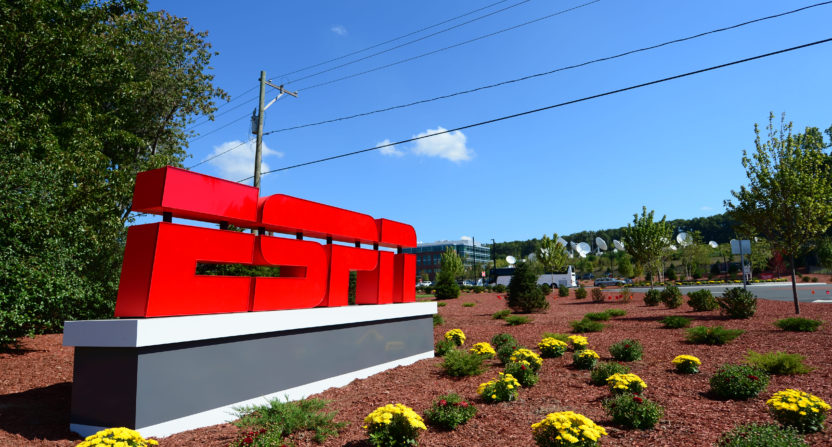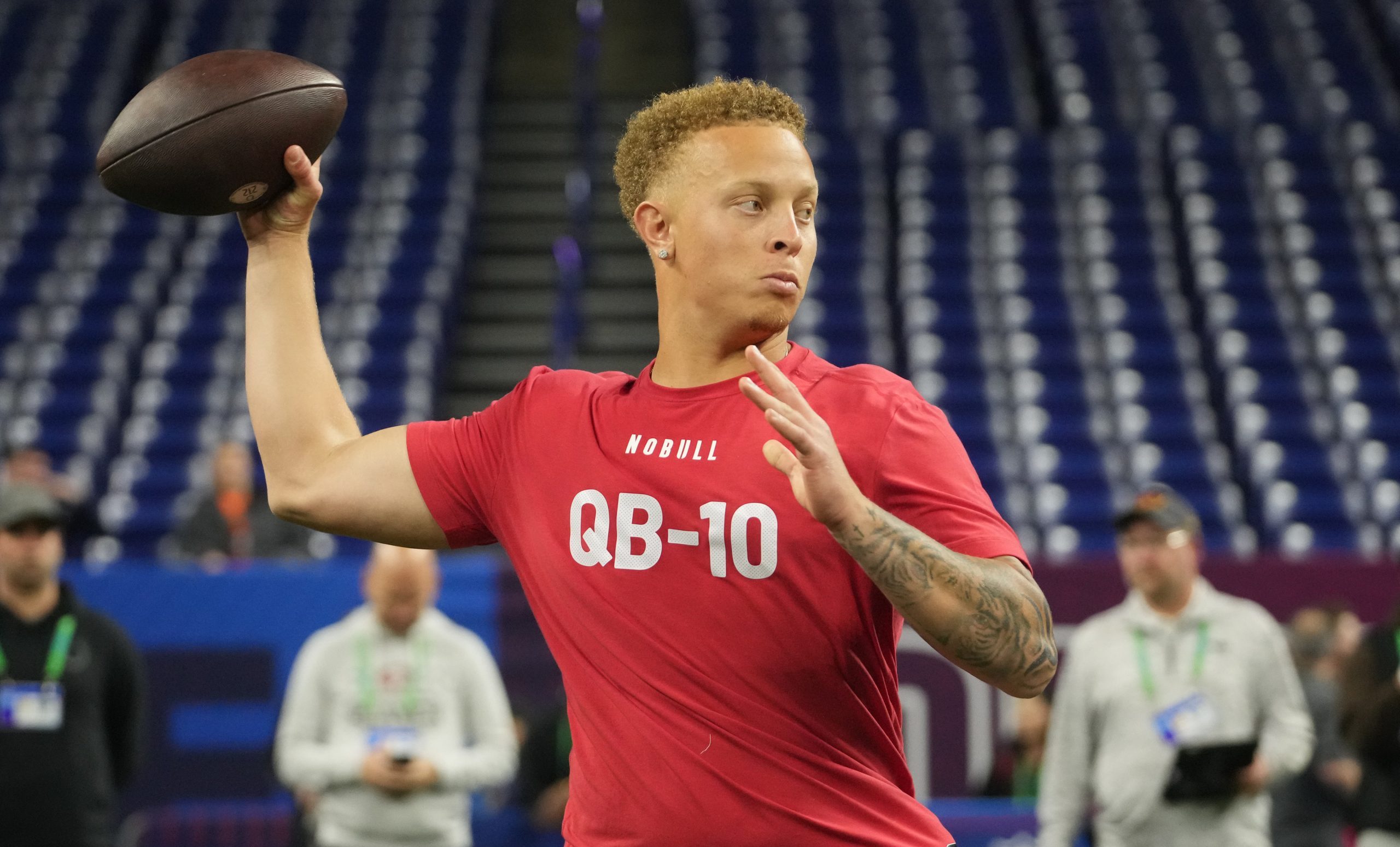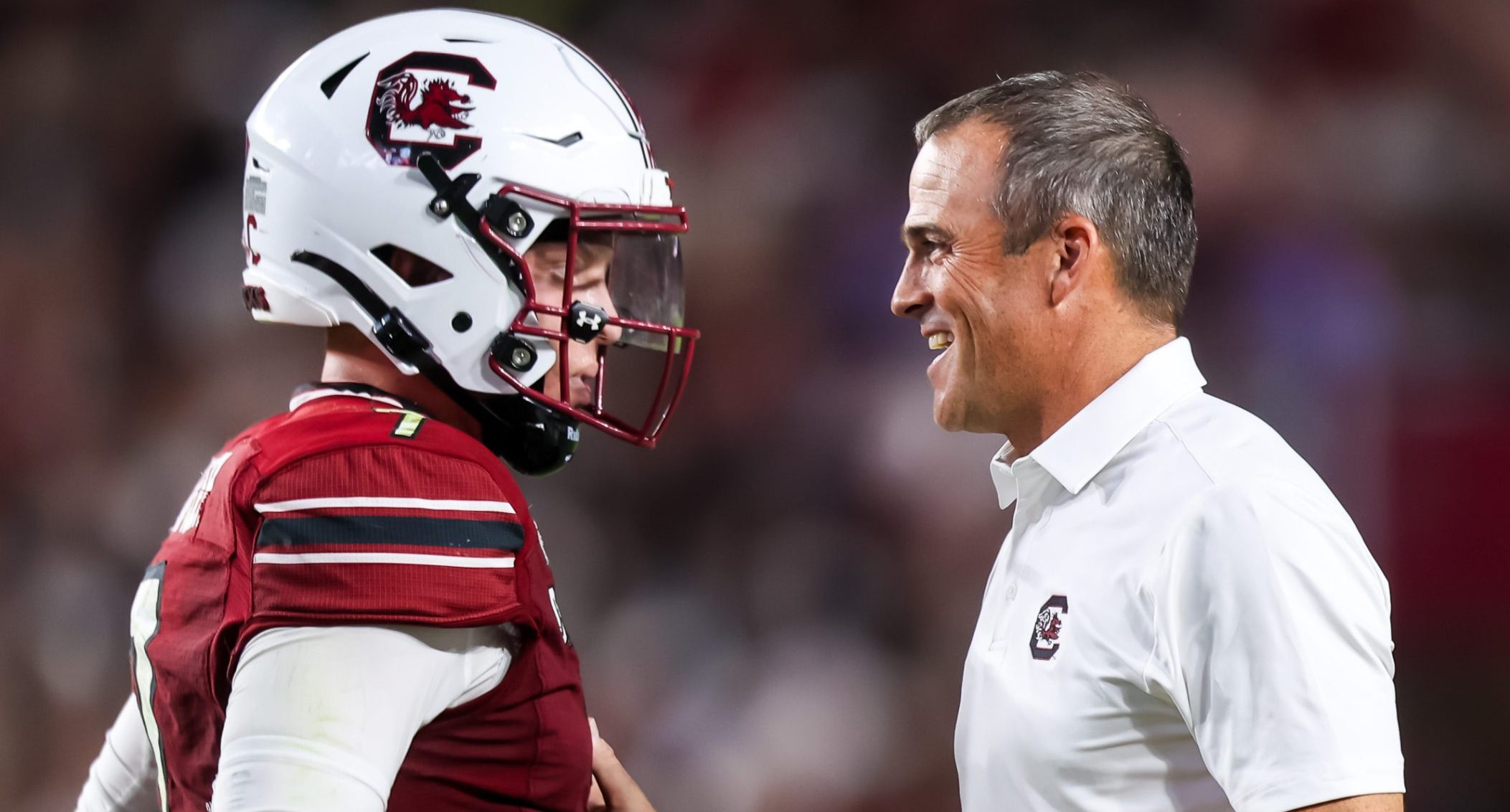There were a lot of remarkable things that newly-extended Disney CEO Bob Iger said in an interview with CNBC Thursday. Probably the most notable from a sports viewpoint was the discussion of Disney’s willingness to explore a sale of ABC (and other non-ESPN linear networks), which Iger said “may not be core” to the company’s business. The most notable overall was Iger calling WGA and SAG-AFTRA union demands “not realistic” around those strikes. But there were also some interesting remarks on exploring “strategic partners” for ESPN, especially around that network’s planned shift to providing a full direct-to-consumer offering of its linear feeds within the next several years. And that prompted Sports Business Journal‘s John Ourand to examine a range of possibilities on who those partners might be:
Bob Iger says he wants to find a strategic partner for ESPN. I asked some of my best sources who the most likely suitors would be.https://t.co/3wWT5AcpO2
— John Ourand (@Ourand_Puck) July 14, 2023
What’s perhaps most interesting about that piece is how many categories Ourand (after consultation with sources) largely rules out. He relays his sources being “pessimistic” on tech firms, such as Amazon, Apple, Google, and Netflix, and also skeptical on Fanatics and Electronic Arts. There was a little more support for a potential gambling-focused investment from the likes of DraftKings or FanDuel, but even that was tepid. But what stood out as actually likely was private equity. Here are some of the comments on that from Ourand’s piece:
The most popular answer centered on private equity investors like KKR, Apollo or Candle Media, the Blackstone-backed media company run by former Disney executives Kevin Mayer and Tom Staggs.
By going the private equity route, Iger would have cover to manage the business more aggressively and move more quickly into sports gaming and streaming.
This would let Iger take ESPN’s financials—which are likely to be hampered by the continued shrinking of the cable bundle — off Disney’s balance sheet, while also allowing him to keep his hand in the sports business.
Iger could find this move attractive because private equity does not represent a long-term play. Five years from now, when ESPN has diversified its business and is growing through streaming and gaming, Disney could buy back that stake.
Essentially, a private equity move could amount to a five-year loan — albeit at a high price.
There’s certainly some logic to that. A capital investment from one of those big private equity firms would provide some immediate balance-sheet relief. And that’s been a thing discussed around Disney recently, especially with some criticisms popping up of the debt incurred in the 2019-approved Disney-Fox deal. There’s also some lessened risk there for Disney; this streaming pivot for ESPN (which will require a lot of balancing) comes with plenty of challenges, and if some of the equity there is held outside the company, their exposure is smaller. (Of course, the downside of that is if the pivot goes exceptionally well, the cost to buy that equity back could be quite high. Or if it isn’t bought back, that’s lost value gains.)
And many private equity firms have been quite into investing in sports and sports broadcasting recently. Apollo bought Yahoo and AOL in 2021, and was linked to various bids for the former Fox regional sports networks (which Disney had to sell off thanks to an agreement with the U.S. Justice Department), and has other sports stakes. Various sports networks already have massive private equity stakes, including YES (13 percent from The Blackstone Group, XFL part-owner RedBird Capital, and UAE wealth fund Mubadala Investment Company). So an ESPN equity stake (it’s worth noting that the company already has one minority investor: Hearst Communications owns 20 percent, while Disney owns 80 percent) certainly could be attractive to private equity.
But a private equity investment is not necessarily great for many fans of ESPN programming or other content. Private equity takeovers of newspapers in particular have been blamed for a lot of cuts and layoffs. And while ESPN is already undergoing significant rounds of layoffs as part of wider Disney cutbacks, those might intensify further if private equity gets a stake. That’s already seen some preemptive criticism, such as this from Bill Shea (formerly a sports business writer with The Athletic, hit in their last round of layoffs):
Private equity bros just salivating to cut ESPN to the bone in the name of "efficiencies" to maximize profits, and leave the stripped carcass for the buzzards. https://t.co/9ruaSGICYP
— Bill Shea (@Bill_Shea19) July 14, 2023
So it will certainly be interesting to see if this private equity projection comes true, and if so, what that leads to for ESPN.







